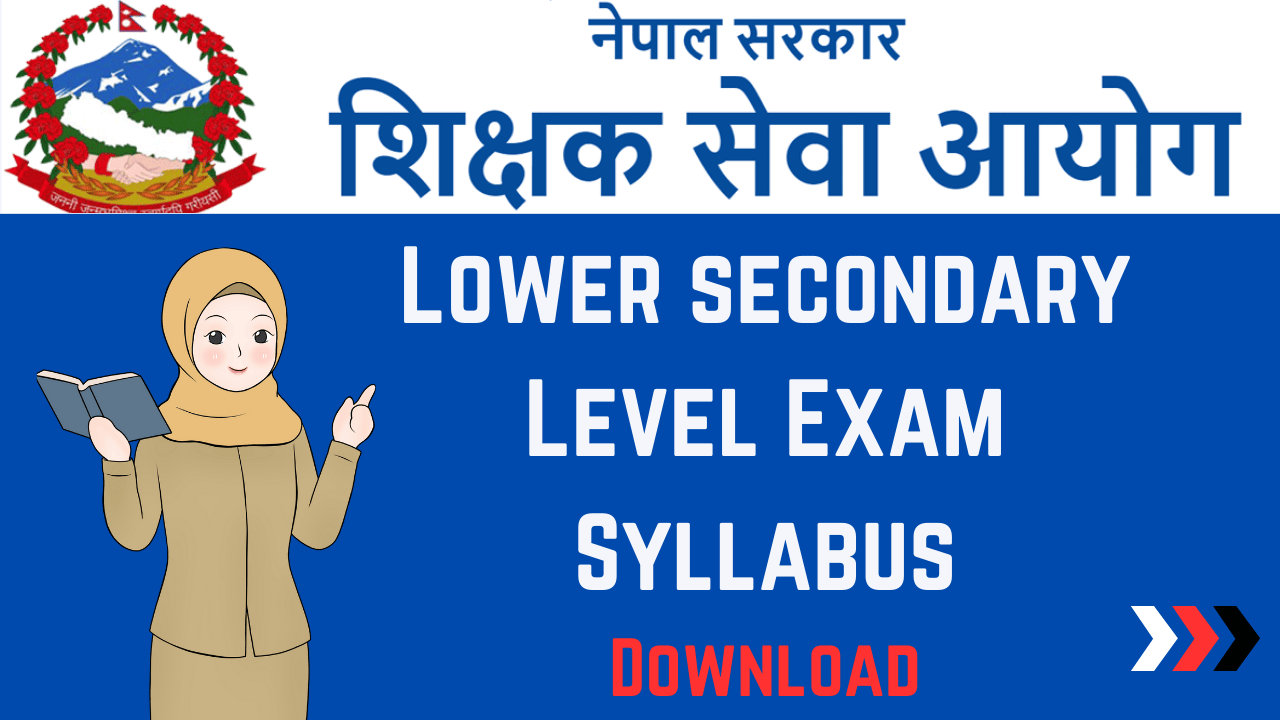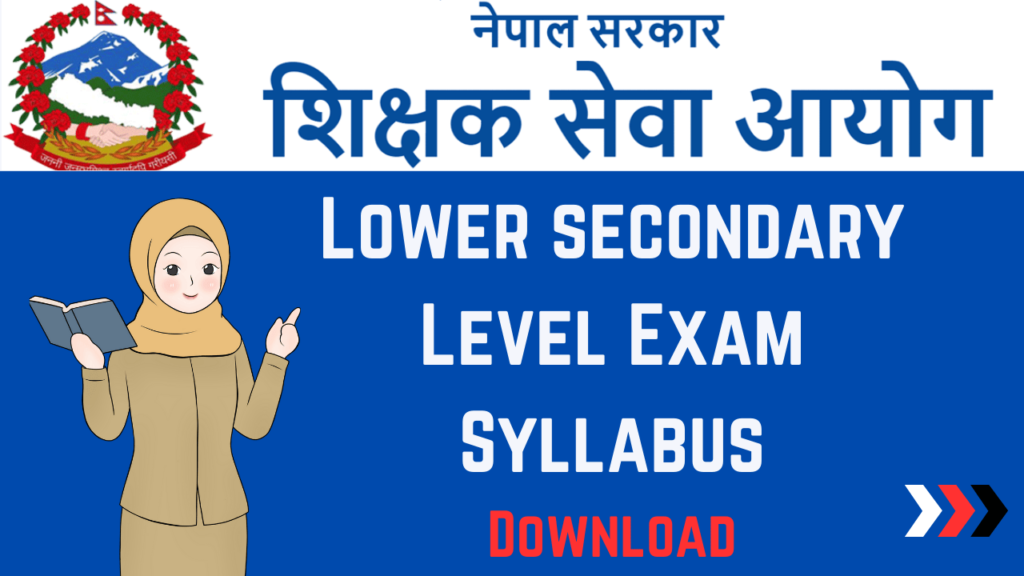
The Teachers Service Commission (TSC) plays a pivotal role in ensuring the recruitment of competent and qualified teachers for lower secondary levels. If you aspire to become a lower secondary teacher, understanding the syllabus is the first step toward success. This article provides a detailed breakdown of the syllabus, exam patterns, and preparation strategies.
Overview of the Lower Secondary Level TSC Exam
The TSC examination for the lower secondary level evaluates candidates’ teaching aptitude, subject knowledge, and general awareness. It includes theoretical and practical assessments designed to measure a candidate’s competency in pedagogy, curriculum knowledge, and classroom management skills.
Syllabus
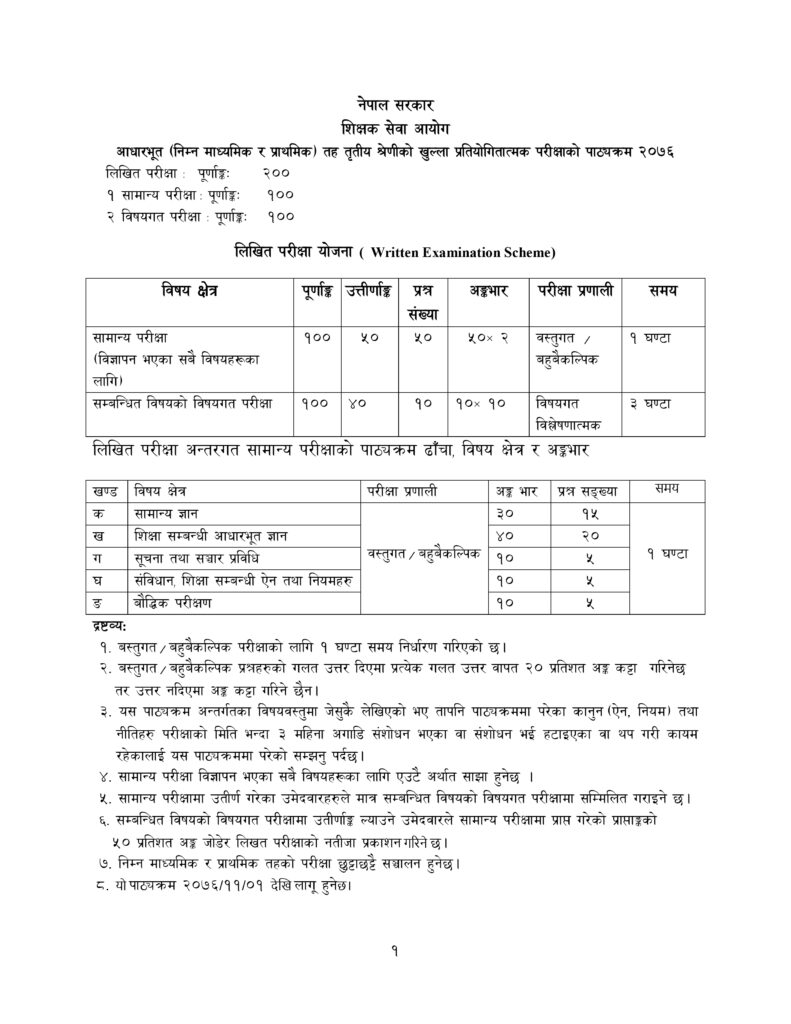
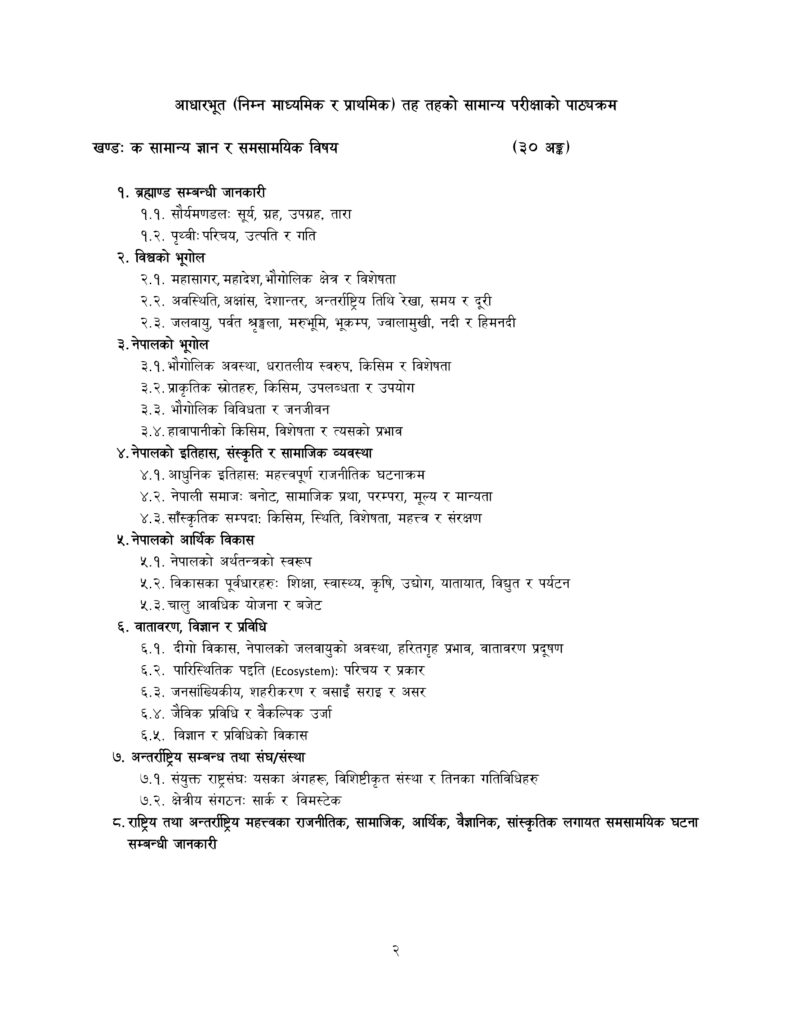
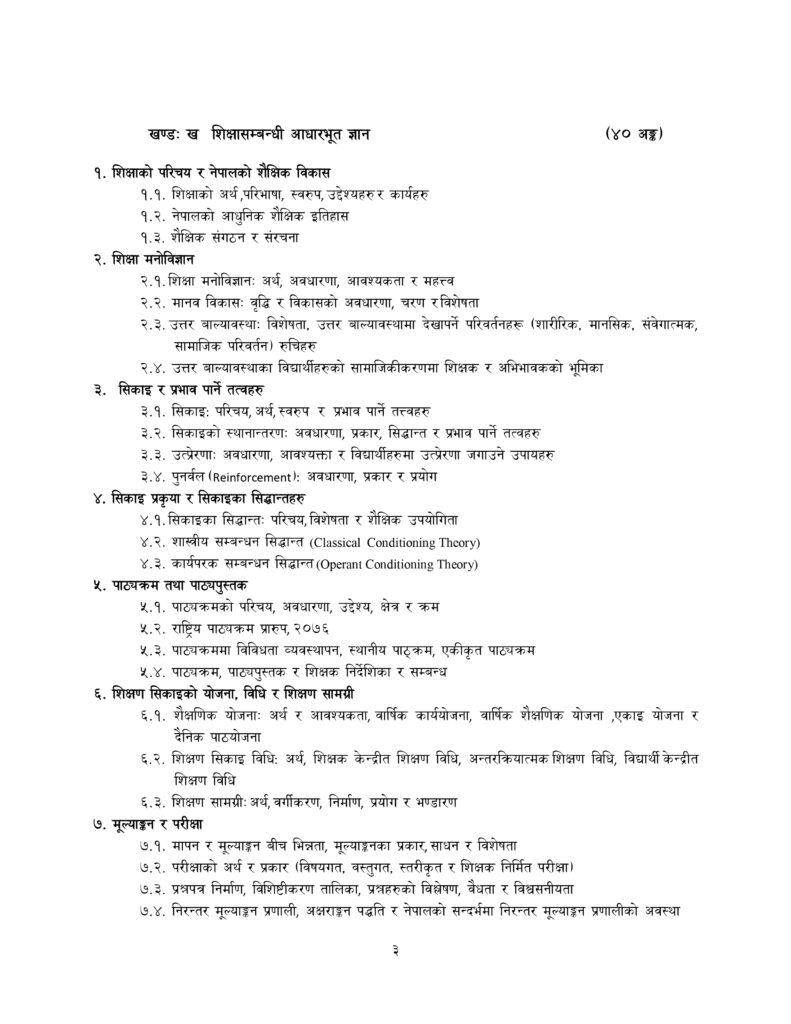
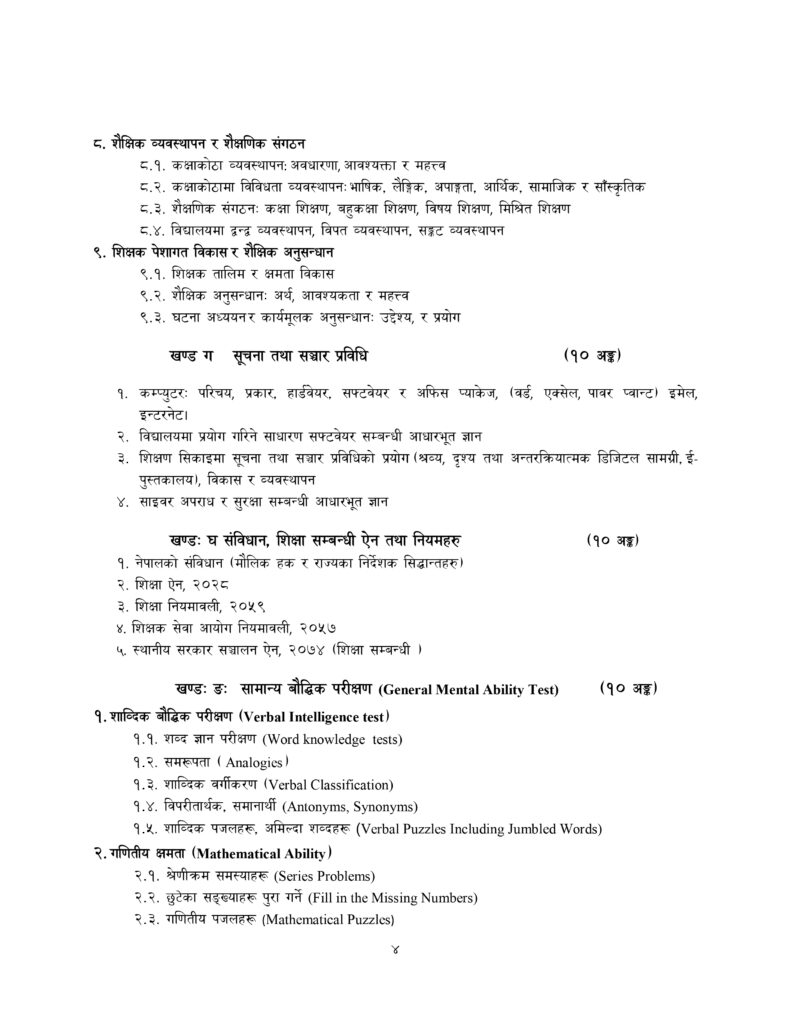
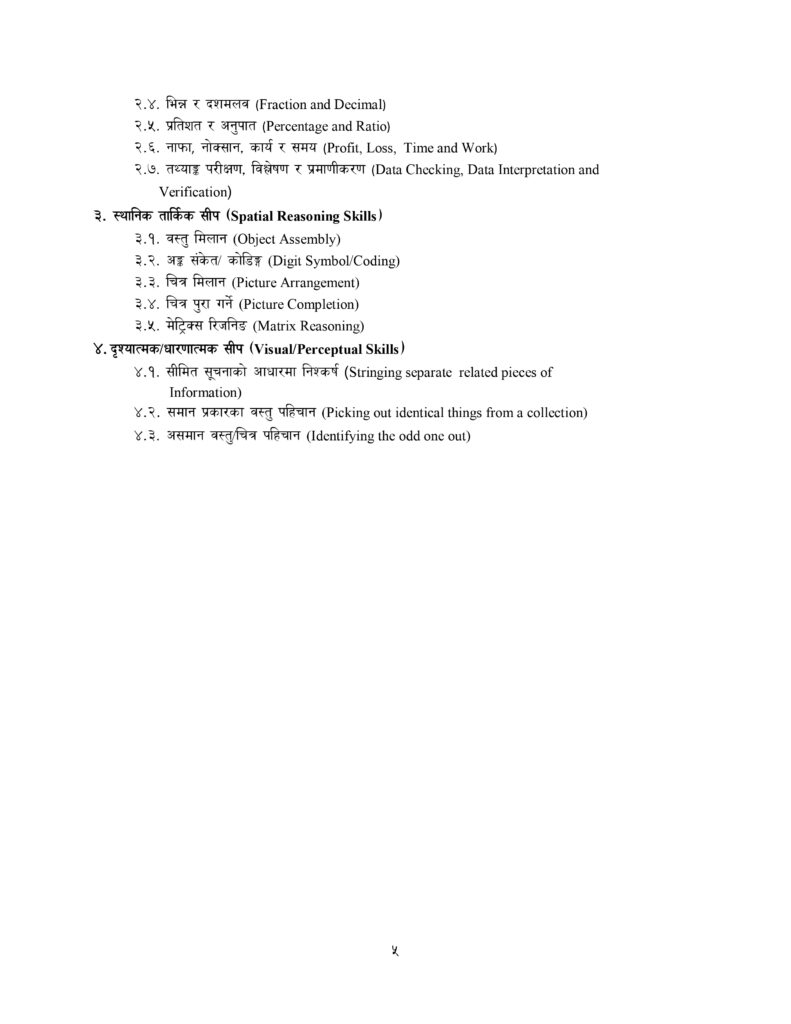
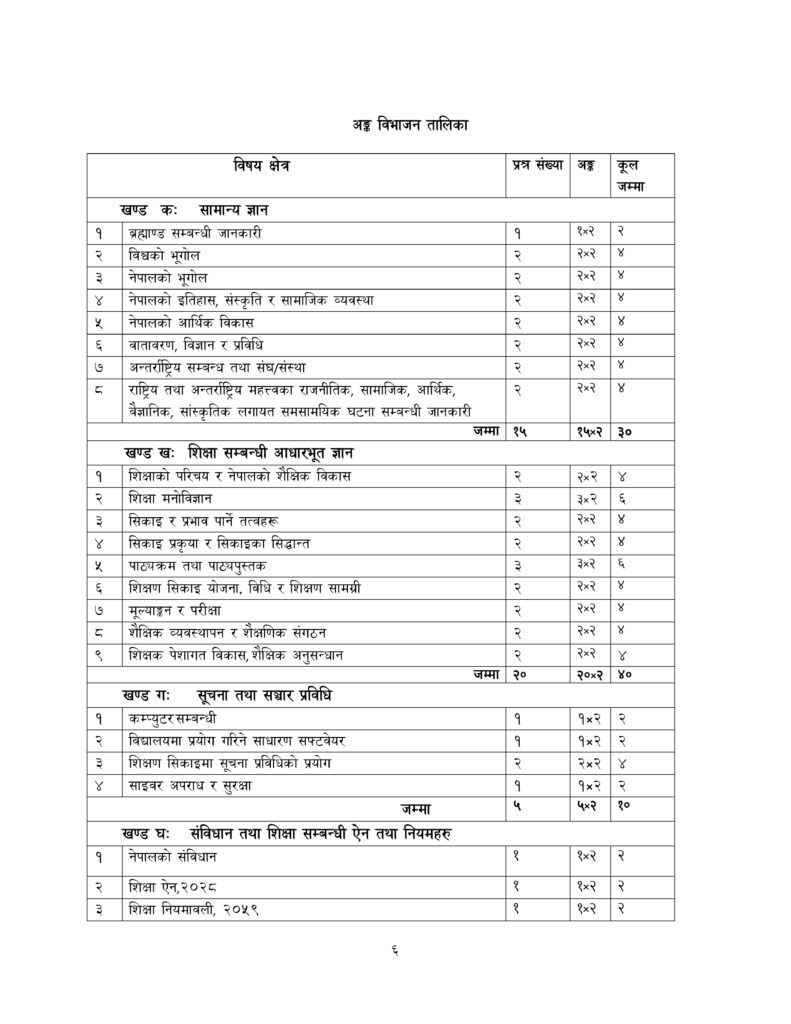

Exam Structure and Pattern
The exam is generally divided into three parts:
- Written Examination
- Objective and subjective questions.
- Tests theoretical understanding and subject expertise.
- Practical Examination
- Focuses on teaching methods, lesson planning, and classroom interaction.
- Interview
- Evaluates communication skills, problem-solving abilities, and teaching philosophy.
Detailed Syllabus for TSC Lower Secondary Level
1. Pedagogy and Teaching Methods
This section assesses candidates’ understanding of effective teaching techniques and classroom management.
Key Topics:
- Educational Psychology: Child development, learning theories, and motivation.
- Teaching Methods: Activity-based, student-centered, and project-based learning.
- Classroom Management: Strategies for maintaining discipline and creating a positive learning environment.
- Assessment Techniques: Types of evaluations, grading systems, and feedback methods.
- Inclusive Education: Addressing the needs of diverse learners, including those with special needs.
2. Subject Knowledge
Candidates must demonstrate expertise in the subjects they intend to teach. Core subjects include:
English
- Grammar and syntax.
- Composition and essay writing.
- Reading comprehension and vocabulary building.
- Teaching English as a second language (TESL) strategies.
Mathematics
- Arithmetic, algebra, and geometry.
- Problem-solving techniques.
- Pedagogical approaches to teaching mathematics.
Science
- Fundamental concepts of physics, chemistry, and biology.
- Environmental science and sustainability.
- Practical experiments and their applications.
Social Studies
- Geography, history, and civics.
- Nepalese culture, heritage, and governance.
- Sustainable development and global perspectives.
Nepali
- Grammar and sentence structure.
- Creative writing and comprehension.
- Literature and its application in teaching.
3. Curriculum and Policy Knowledge
This section emphasizes familiarity with the national curriculum framework and educational policies.
Key Topics:
- National Curriculum Framework: Objectives, structure, and implementation.
- Education Policies of Nepal: TSC guidelines, teacher roles, and responsibilities.
- Curriculum Development: Principles, strategies, and evaluation methods.
- 21st-Century Skills: Critical thinking, collaboration, and digital literacy.
4. General Knowledge and Current Affairs
Candidates must stay updated on national and international events and issues.
Key Topics:
- Current Affairs: Recent events in education, politics, and global trends.
- Nepalese Constitution: Fundamental rights, duties, and governance structure.
- General Awareness: Cultural, environmental, and socioeconomic issues.
5. ICT and Digital Literacy
As technology integration becomes essential in modern teaching, this section evaluates digital skills.
Key Topics:
- Basic Computer Skills: Word processing, spreadsheets, and presentations.
- Educational Technology: Use of tools like interactive whiteboards and e-learning platforms.
- Cybersecurity: Safe use of the internet and digital resources.
- Online Teaching: Strategies for effective virtual classrooms.
6. Practical Teaching Skills
Candidates must demonstrate their teaching abilities through real-world applications.
Key Areas:
- Lesson Planning: Objectives, activities, and assessments.
- Interactive Teaching: Engaging students using innovative techniques.
- Classroom Interaction: Handling queries, group discussions, and peer learning.
- Reflective Teaching: Analyzing and improving teaching practices.
Preparation Tips for TSC Lower Secondary Level Exam
1. Understand the Syllabus Thoroughly
Analyze the syllabus in detail and prioritize topics based on your strengths and weaknesses.
2. Create a Study Plan
Design a timetable that allocates specific time slots for each subject. Ensure consistency and balance.
3. Focus on Pedagogy
Since pedagogy is a critical component, study educational theories, teaching methods, and classroom management strategies.
4. Stay Updated on Current Affairs
Read newspapers, watch news channels, and follow educational updates to excel in the general knowledge section.
5. Practice Mock Tests
Solve past papers and take mock exams to understand the exam pattern and improve time management.
6. Enhance ICT Skills
Familiarize yourself with basic computer applications and digital teaching tools through practice and tutorials.
7. Participate in Workshops
Attend teacher training programs or workshops to gain practical insights into teaching strategies and curriculum development.
Common Challenges and Solutions
1. Difficulty in Managing Time
- Solution: Prioritize high-weightage topics and create a realistic study schedule.
2. Lack of Practical Exposure
- Solution: Engage in teaching practice sessions or internships to gain hands-on experience.
3. Fear of Interview
- Solution: Prepare answers for commonly asked questions and practice speaking confidently.
Why Pursue a Career in Teaching?
- Impactful Profession: Teachers shape the future by educating young minds.
- Job Stability: Government teaching jobs offer security and benefits.
- Personal Growth: Continuous learning and interaction with students ensure professional and personal development.
Frequently Asked Questions
Q1: What are the eligibility criteria for the TSC lower secondary level exam?
A1: Candidates must have a minimum qualification of a Bachelor’s degree in Education or a related field. A teaching license is also required.
Q2: Is prior teaching experience necessary?
A2: While not mandatory, prior experience adds value and increases your confidence in teaching skills.
Q3: How important is the interview in the selection process?
A3: The interview holds significant weight as it evaluates communication skills, teaching philosophy, and personality.
Q4: How can I improve my teaching demonstration?
A4: Practice delivering lessons in front of peers or mentors and seek feedback for improvement.
Q5: Are there any recommended books for the TSC exam?
A5: Refer to standard textbooks on pedagogy, subject knowledge, and general knowledge. Official TSC publications are also helpful.
The Teachers Service Commission syllabus for the lower secondary level exam is designed to ensure the selection of qualified and skilled educators. By understanding the syllabus and adopting effective preparation strategies, you can confidently approach the exam and achieve your dream of becoming a lower secondary teacher.
